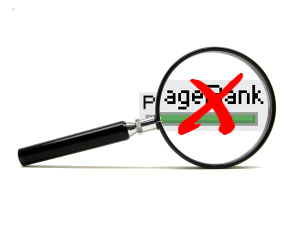 People take SEO too loosely. It is a science in one way or another, there are some rules provided by Google (and other search engines playing a catch up) and the rules are to be followed strictly in order to achieve the right results. And it’s supposed to be a given to follow them, if you want to succeed anyway.
People take SEO too loosely. It is a science in one way or another, there are some rules provided by Google (and other search engines playing a catch up) and the rules are to be followed strictly in order to achieve the right results. And it’s supposed to be a given to follow them, if you want to succeed anyway.
So it baffles me when people talk about SEO so loosely. PageRank and the nofollow attribute on links is one example. All other factors aside, PageRank is sort of an arbitrary number that we look at when thinking in terms of site quality of ranking on Google. We know that it’s one one of about 200 parameters Google uses to rank websites in the search results, but it’s about all we get from Google. And so we want to use it effectively on our sites.
It makes sense to pay attention to what they say at the very least. After all, we want to do well in their search engine. But then, very often on various forums I can see people openly stating false information as facts. Such as that nofollow attribute prevents search engines from following the links, in other words it makes the links invisible.
That can’t be further from truth, and in some cases can pose a real problem for your website. The latest post I can find about the issue from Matt Cutts says:
So what happens when you have a page with “ten PageRank points” and ten outgoing links, and five of those links are nofollowed? Let’s leave aside the decay factor to focus on the core part of the question. Originally, the five links without nofollow would have flowed two points of PageRank each (in essence, the nofollowed links didn’t count toward the denominator when dividing PageRank by the outdegree of the page). More than a year ago, Google changed how the PageRank flows so that the five links without nofollow would flow one point of PageRank each.
That means nofollow attribute doesn’t make links invisible, it just doesn’t account the PageRank to the target page. It does, however, take it away from your page and that’s important.
So why it is wrong to say that search engines don’t follow links with the nofollow attribute? It’s not just semantics and it means different things. The first problem with that is, that by saying so you imply that the target page will not be indexed if it’s not indexed already. However, it may very well be. By ignoring nofollow links you’re ignoring the extra exposure to search engine bots.
The second and the main issue is that you’re wasting your PageRank with nofollow links. If you think you can have as many external links as you wish on your page, and as long as you add the nofollow attribute, all of your PageRank stays, think again. The above quote from Matt Cutts says otherwise.
Normally that is not a big of an issue. Certainly you shouldn’t care about it if you’re just working on a random site. There are far more important factors in SEO as evident by what Google tells us and what we can see ourselves.
But if, for example, you have thousands of comments on one blog post, most of which have links to external sites and your page becomes like a link farm more than anything, consider that nofollow attribute will not save your PR – it will evaporate from that page. A random page like that will not do much harm, but if you’re working on your site’s architecture with specific SEO goals in mind, and you make such mistakes, it can and will affect your success.
A solution to the problem, other than removing all links, is a two-step external linking. And what that means is, basically, instead of having a 100 of external nofollow links on one page, to place each external link on its own page. Such a page would then have only one nofollow link and the PR leakage would be minimal. Better yet, you can have no links at all, but redirect the page via meta refresh or Javascript (a “redirecting, please wait…” page).
